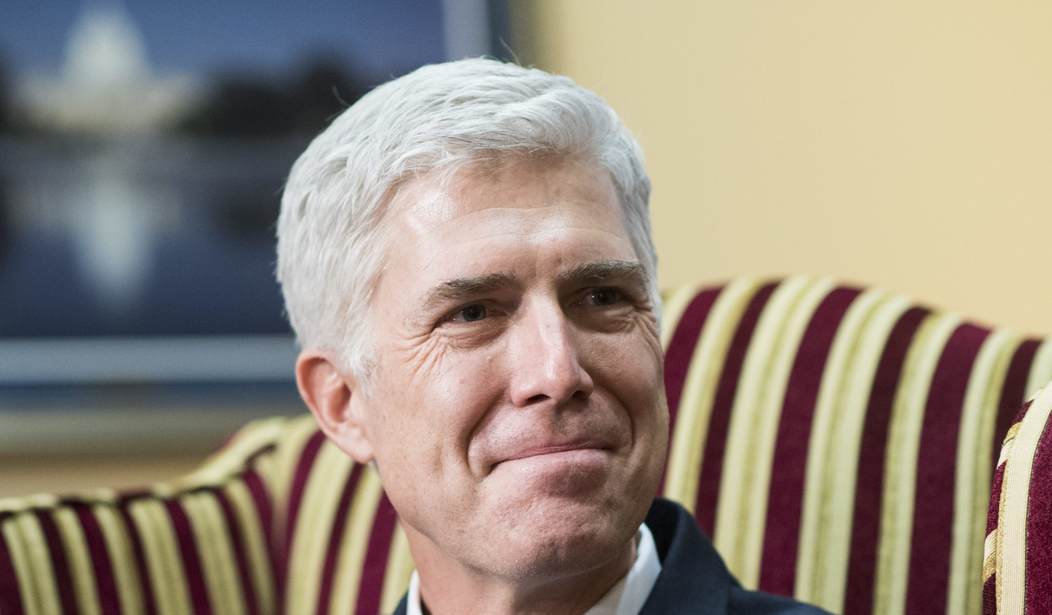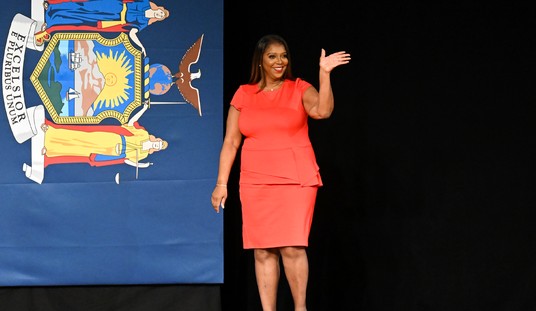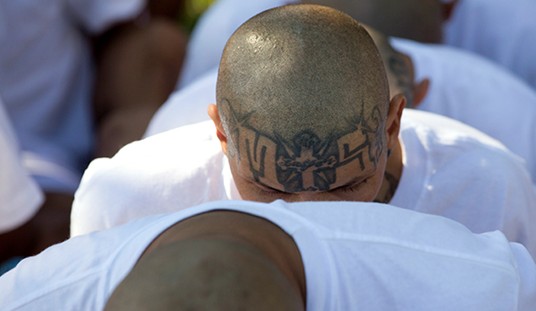On Monday, the U.S. Supreme Court ruled in favor of a Native American man who was convicted of hunting off-season in Bighorn National Forest. Neil Gorsuch joined the four liberal justices in Herrera v. Wyoming, holding that an 1868 treaty between the U.S. and the Native American Crow Tribe granted the tribe the right to hunt in “unoccupied lands,” and that the treaty did not expire when Wyoming became a state in 1890.
Crow Tribe member Clayvin Herrera was charged with off-season hunting in 2014, but he argued that the 151-year-old treaty protected his ability to hunt at that time. Wyoming argued that the treaty was invalidated when Wyoming received statehood, and lower courts agreed.
In a 5-4 decision, Justice Sonia Sotomayor ruled that the 1868 treaty stood and gave the tribe the right to hunt in Bighorn National Forest. Justices Ruth Bader Ginsburg, Elena Kagan, Stephen Breyer, and Neil Gorsuch concurred, while Justice Samuel Alito wrote a dissenting opinion, in which Chief Justice John Roberts and Justices Clarence Thomas and Brett Kavanaugh joined.
There isn’t “any evidence in the treaty itself that Congress intended the hunting right to expire at statehood, or that the Crow Tribe would have understood it to do so,” Sotomayor wrote.
The case involved parsing many different precedents. In Crow Tribe of Indians v. Repsis (1995), the U.S. Court of Appeals for the Tenth Circuit ruled that the Crow Tribe’s hunting right expired when Wyoming became a state. That decision relied on the Supreme Court ruling in Ward v. Race Horse (1896), which ruled that the Bannock indians did not keep their right to hunt on unoccupied lands after Wyoming became a state.
When Wyoming gained statehood, it was “admitted into the Union on an equal footing with the original states in all respects whatever.” In 1895, Wyoming passed a law regulating the killing of game in the state. Both Repsis and Race Horse upheld the state’s right to regulate hunting.
Yet Sotomayor and the majority held that the Supreme Court decision Minnesota v. Mille Lacs Band of Chippewa Indians (1999) repudiated Race Horse. Interestingly, Sotomayor employed originalism to argue in favor of the Crow tribe.
6/ J. Sotomayor continues to apply treat-originalism, with a citation to a (fairly) contemporaneous dictionary from 1889. pic.twitter.com/0aZqY6NgHm
— Josh Blackman (@JoshMBlackman) May 20, 2019
Alito slammed the ruling as a “potentially pointless disquisition” on the treaty, claiming that Wyoming’s right of statehood overrules the tribe’s right to hunt on unoccupied land.
12/ What a 5-4 decision! The majority asserts that a 123-yr old decision was "repudiated" in 1999, which created an exception to issue preclusion, so that the Court could interpret the terms of an 1868 treaty. The dissent calls the majority opinion a "pointless disquisition" pic.twitter.com/W2UMH2MQRP
— Josh Blackman (@JoshMBlackman) May 20, 2019
Interestingly, Alito agreed with the Tenth Circuit that the tribe’s hunting right had expired because “the treaty reserved an off-reservation hunting right on ‘unoccupied’ lands and the lands of the Big Horn National Forest are ‘occupied.'” Since “unoccupied” land “within the meaning of the treaty meant land that was open for commercial or residential use, and since the creation of the national forest precluded those activities, it followed that the land was no longer ‘occupied’ in the relevant sense.”
Gorsuch’s decision to side with the liberals seems remarkable, but it is in line with his history. As NPR’s Nina Totenberg reported this past March, Gorsuch provided the fifth vote in Washington State Department of Licensing v. Cougar Den (2019), which upheld “Yakama Tribe and its right under an 1855 treaty to travel the public roads without being taxed on the goods brought to the reservation.”
“For those familiar with Gorsuch’s record, his vote was not a surprise. He is, after all, the only westerner on the Supreme Court; indeed, prior to his 2017 appointment to the court, he served for 11 years on the federal court of appeals based in Denver — a court that covers six states and encompasses 76 recognized Indian tribes,” Totenberg wrote.
Gorsuch provided the Supreme Court diversity that Justice Antonin Scalia called for in his dissent to Obergefell v. Hodges (2015), the ruling that redefined marriage as being between two individuals regardless of their sex. Scalia noted that most Supreme Court justices came from the Ivy Leagues and the coasts, and very few were Protestants. Gorsuch, an Episcopalian from Colorado, gave some diversity to the Court.
Yet that very diversity may have led Gorsuch to side against the conservatives and with the liberals on this case. He seems particularly attuned to the concerns of Native American tribes, for better or worse.
Follow Tyler O’Neil, the author of this article, on Twitter at @Tyler2ONeil.









Join the conversation as a VIP Member